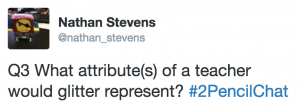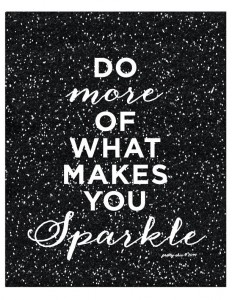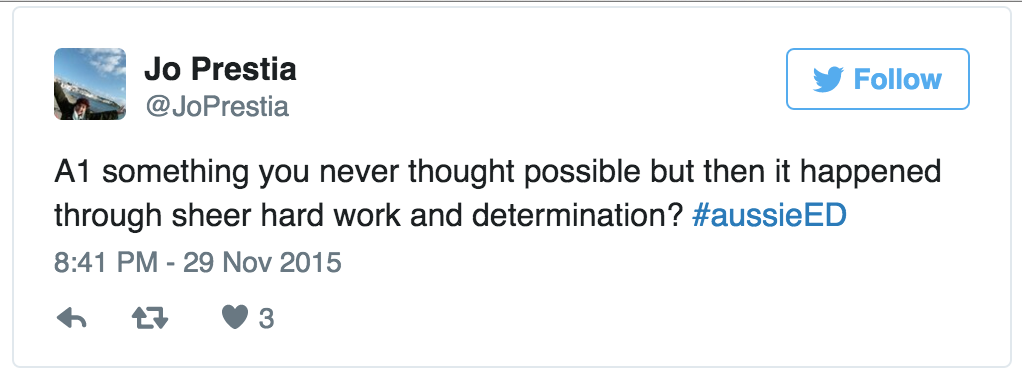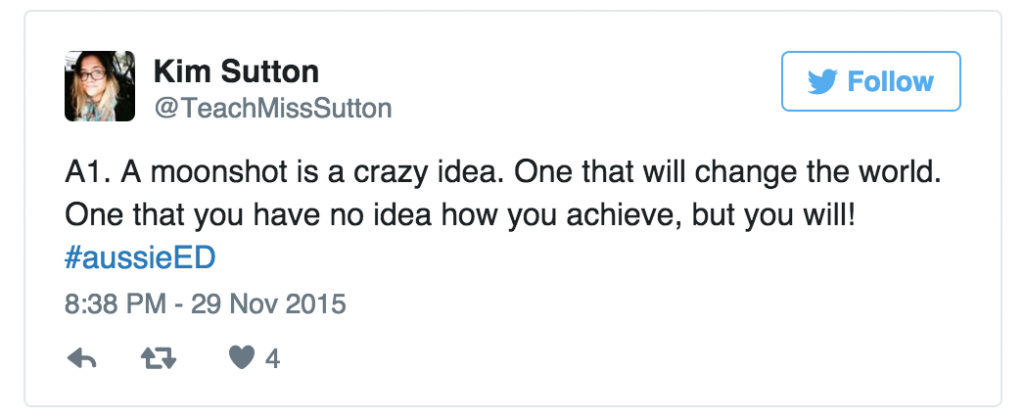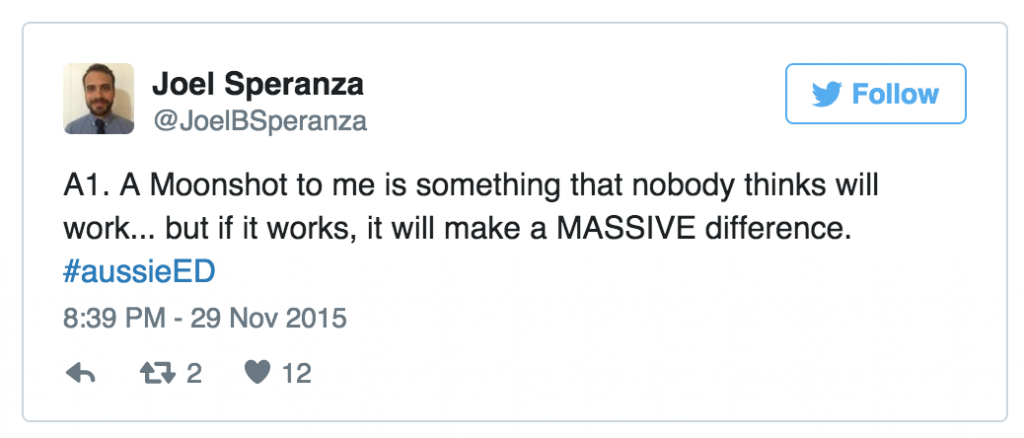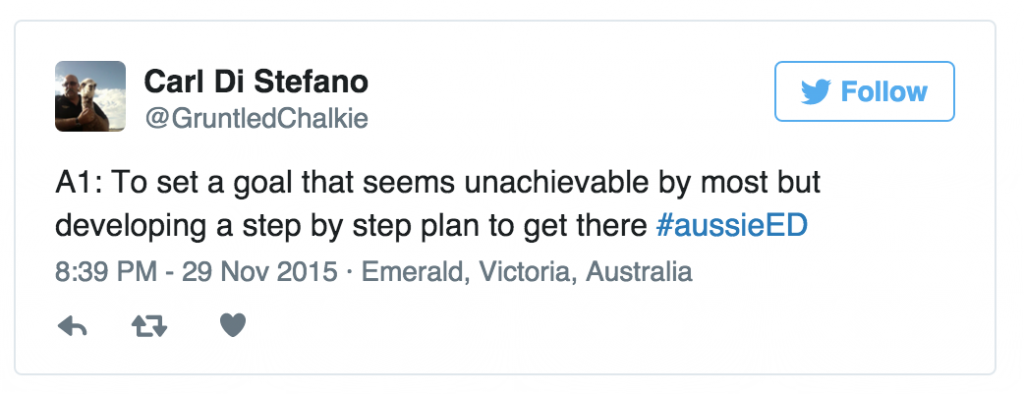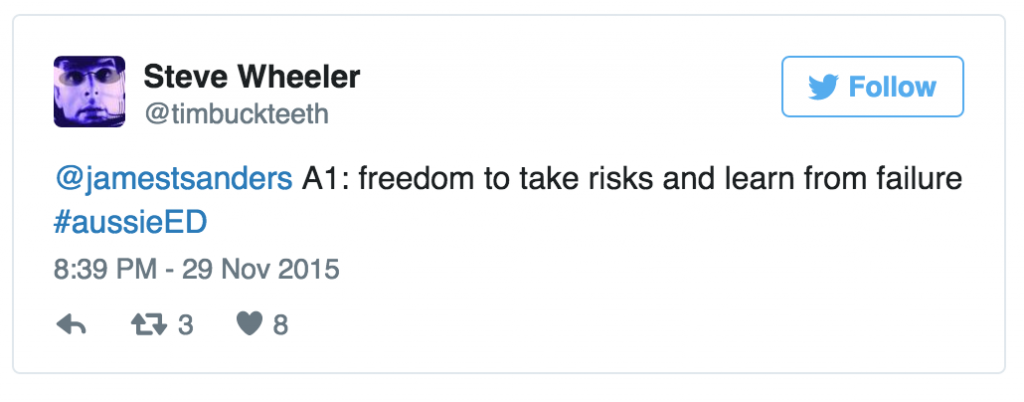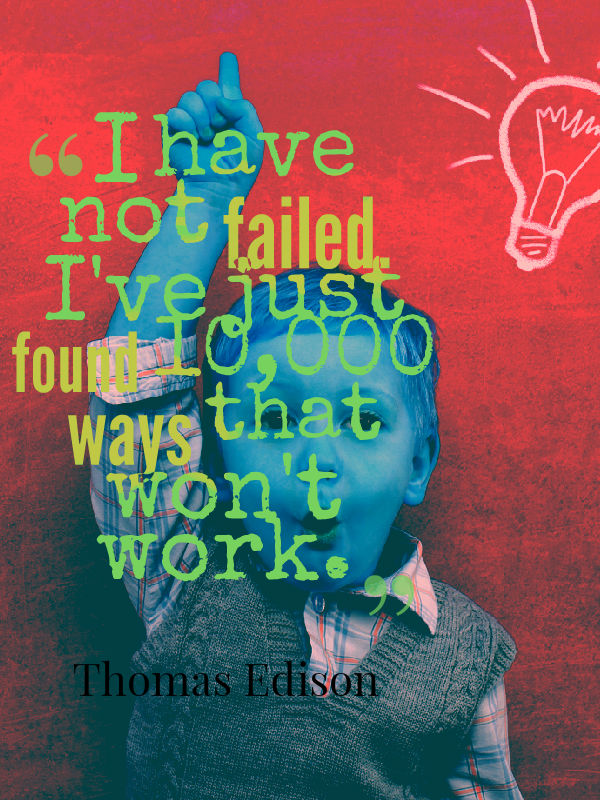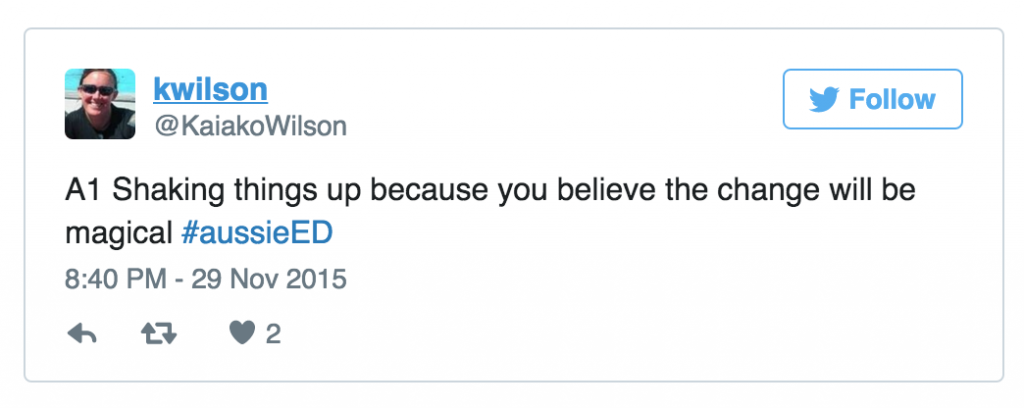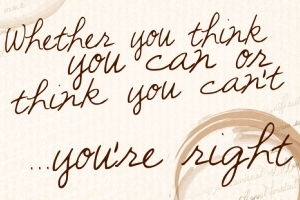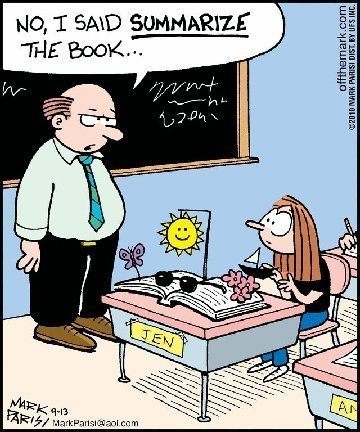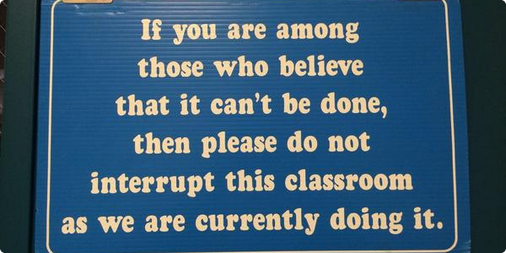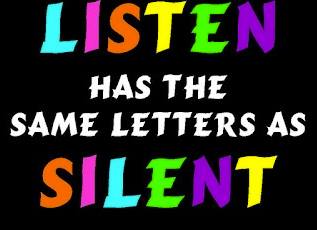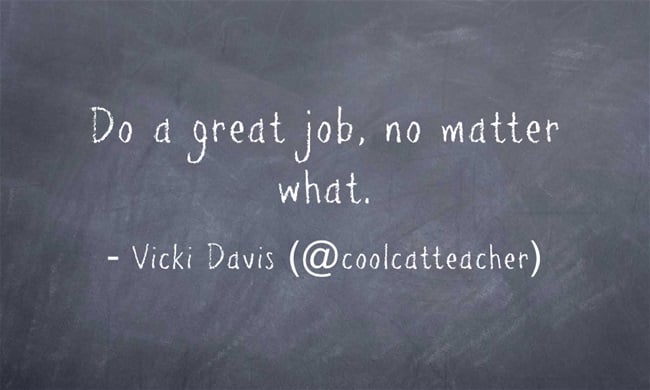My dear pre-service teachers,
I was very excited when finally one of my career goals was realised earlier this year with an appointment to run a tutorial group of pre-service teachers.
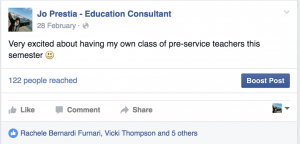
Excited
I have a great bunch of 2nd year students who will one day embark on the greatest of professions. Teaching, after all, is what allows all other life’s dreams to come true. Have you thought about that? Teachers make all other professions possible. For many of us it’s about making a difference. That’s what sets us apart – I believe I can make a difference even if it takes years and years, I’m never giving up!
Reading and digesting the text
The other day I was reading my chapters from our text book – I figure if my pre-service teachers have to read it, so should I (yes I know you don’t all read the chapters!). Much of what is written I have encountered over the last 30 years in schools but every now and then I find a gem or two that makes me think…Ahhh yes!
So I thought as part of my first ‘blog hour’ – my coach had me set a goal of one hour per week because I mentioned in a telecoaching session last week that I really miss writing my blog. It seems to be the one thing I always set aside till next time because there’s some other more important task to complete. Well, now that’s over and here I am feeling happy and comfortable – early morning writing 🙂
So…about my first ‘blog hour’ – easily distracted is what I would have on my school report!
Back to this particular chapter – the one on reflective practice -are you reading this my pre-service teachers? I’m just about to surmise it for you – as if you picked up my copy and only had to read the highlighted sections and border notes.
“No matter how well you are doing in your teaching, there’s always room for improvement and refinement” (Churchill et al., 2016, p. 482).
Reflecting on practice is not always about mending what doesn’t work or reviewing those classes that just didn’t go the way you were expecting them to evolve. It’s also very much about celebrating what did work and will work in the future. Put the failed class behind you as there will be many of them, don’t let them defeat you. Instead soon after talk it out with your mentor or a friend who understands, record your thoughts, that’s what iphones are really made for, blog it out, write it in your teacher journal, anything, just get it out while it’s fresh, and don’t forget to make it more than just a re-tell, incorporate the skill of critique and ask yourself; Why? How?
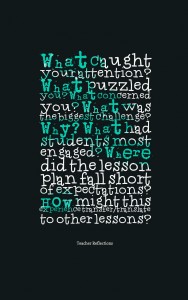
Reflective questions
“Reflection … entails making sense of what occurred, not just reporting on it or repeating it back at a later time” (p. 484).
‘Real’ teaching is reflection in action (p. 485) that is thinking about and reflecting simultaneously while practising. It is simply the act of learning by doing and is only possible while planning, teaching and assessing. By the way this also works for your students, don’t forget to plan for it!
Speaking of which, students are a great feedback tool. They tell it like it is and we should all make efforts to ask them for feedback. It doesn’t always have to be formal and after the completion of a session or unit. Listening as they go about their learning is a powerful tool in gaining insights into what they can offer by way of data for your reflective practice. Even the silence is important – what was not said or asked?
“Observations can be done from a distance; listening requires proximity and intimacy” (Schultz, 2003 in Churchill, 2016, p. 489).
Take the time to ‘learn your students’ and while listening is a really important avenue so is watching, and learning them as a way to then take action. If you are interested in formal feedback it doesn’t always have to be an arduous task, feel free to download
and use it with your younger students to gain insights into how they perceive what is going on in your classes. Don’t take it personally but use feedback as a tool to continually improve your practice.
Another avenue for collecting data on which to reflect is via a critical friend. This will mean inviting a trusted colleague into your class to observe a pre-determined aspect of your teaching and then give their feedback. Video recording just 10 minutes of your class is also a great way to reflect on practice. Turning the camera towards the students, similar to how a go-pro operates offers even further insights.
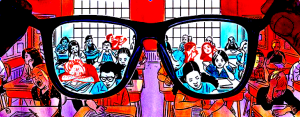
From a teacher’s perspective
It also got me thinking my pre-service teachers that while on placement you might contemplate asking your peers to come and observe your teaching – yet another interesting perspective.
Using technology to reflect
In this technological world there are a myriad of ways one can record reflective practice: video diary, blog, wiki, journal, word doc, instagram, etc., but have you thought about twitter? As a social media outlet I have found it to be an inspiration in my own teaching and learning and have a wonderful professional learning network of outstanding educators with whom I interact and share my practice. I would highly recommend it – you can’t judge until you try it. You can read more about my twitter experience here.
As you’ve probably concluded I use this blog as reflective practice and cannot say enough as to it’s value for me as an educator and learner. I write about many aspects of my life and always use them as a reflection of how we can be better.
“As an action-orientated habit of mind, critically reflective practice can offer new insights that will improve our work and our relationships with our students … far from being ‘busy work’, reflection is an essential component to … [our] work as teachers” (p. 502).
I once again encourage you my pre-service teachers to begin recording your experiences, thoughts, questions, think out loud through your reflective journal and “when [you as] novice teachers move beyond thinking about … [your] teaching as ‘doing’ to conceptualising how … [your] ‘doing’ informs … [your] practice, … [you] are on the road to turning … [your] experience into expertise” (p. 503).
I am so very happy to be part of that learning journey with you.
How will you record reflective practice? Please share your thoughts by commenting below.
Thanks for reading 🙂
Reference
Churchill, R., Ferguson, P., Godinho, S., Johnson, N. F., Keddie, A., Letts, W., Mackay, J., McGill, M., Moss, J., Nagel, M. C., Nicholson, P. & Vick, M. (2016). Teaching: Making a difference. Milton, QLD, Australia: John Wiley and Sons.
